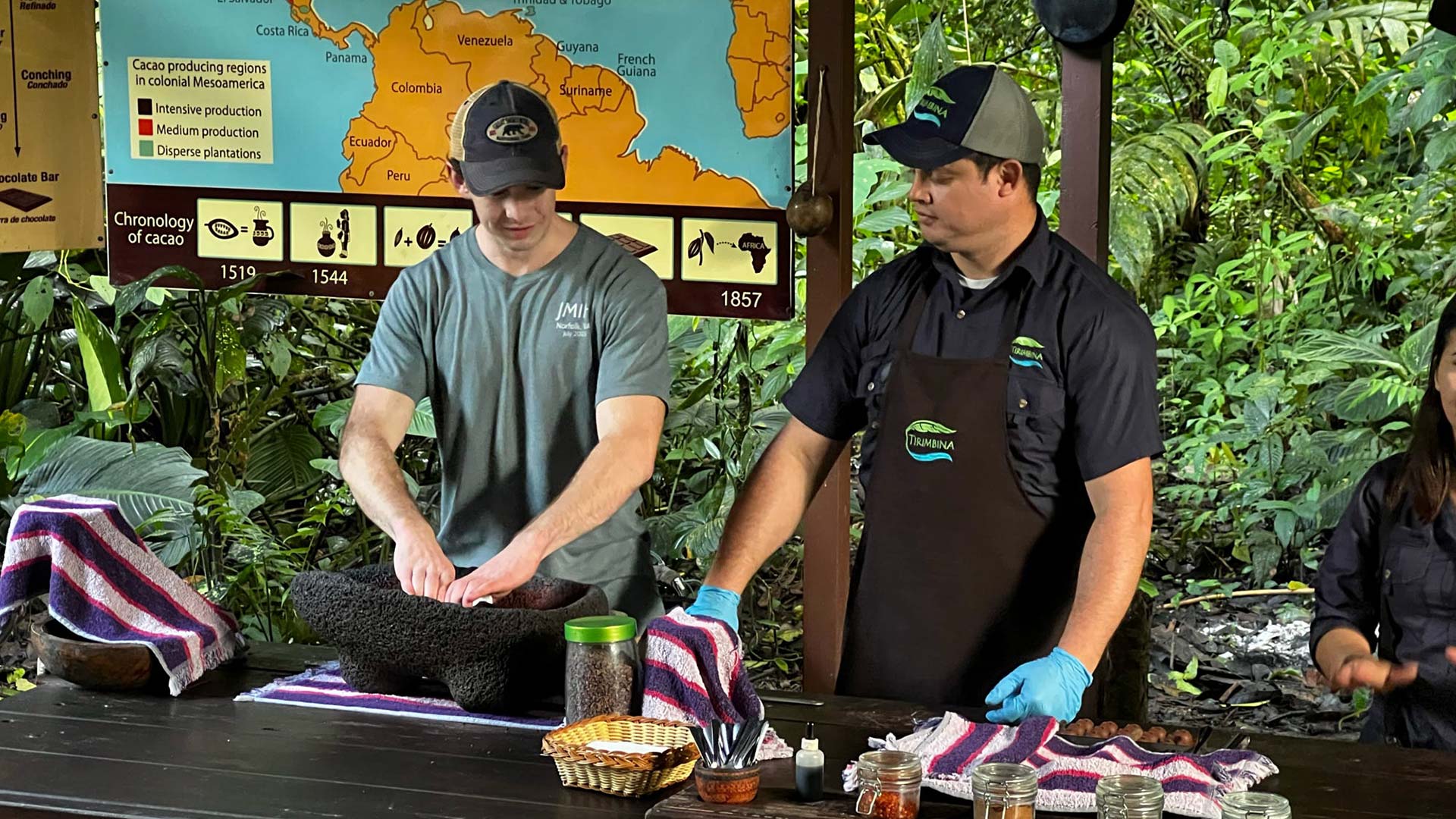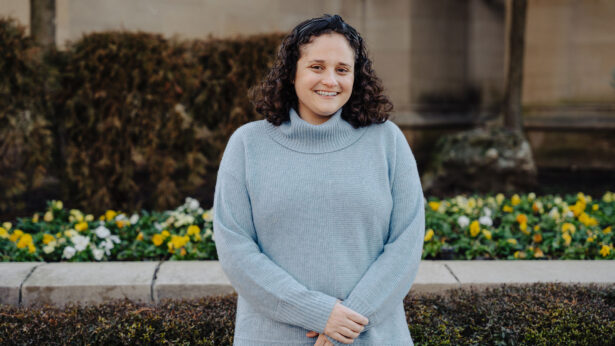
In the tropical forests of Costa Rica, Skylynn Pastorello got an up-close view of insects not found in Tennessee, such as a large wasp that preys on tarantulas and bullet ants, named for the extremely strong sting they deliver.
Pastorello, a freshman wildlife and fisheries science major, was among 15 students who participated in a pilot international program just for first-year students in the Herbert College of Agriculture, which is a unit of the UT Institute of Agriculture. The students, along with a team of faculty and staff, spent a week in Costa Rica during the 2025 winter miniterm.
Organized by the Smith Center for International Sustainable Agriculture and the college, the program focuses on first-year students to engage them early in their academic careers and set them on a path for becoming global change agents in their future studies and careers.
“It was really cool to step out of my comfort zone. I was like three or four feet away from a hawk wasp—wasps that hunt tarantulas—and bullet ants,” Pastorello says. “I think I proved to myself that I could adapt to overcome more than what I initially thought.”
The idea of a study-abroad experience focused on first-year students emerged in spring 2023, when Smith Center leaders envisioned a course to give students foundational knowledge in international agriculture and natural resources. Ryan Sharp, associate professor in the School of Natural Resources with a specialization in outdoor recreation and park management, and Denita Hadziabdic Guerry, associate professor and Fulbright scholar to Ghana in the Department of Entomology and Plant Pathology, led the effort, along with Kyra Barrier, the college’s study-abroad coordinator.
“I wanted to be involved in a first-year program because it gives students an early foundation for international engagement, shaping their confidence and curiosity from the start of their academic journey at UT,” says Hadziabdic Guerry, whose teaching usually focuses on upper-level undergraduates and graduate students. “This course was especially impactful, as it encouraged students to step out of their comfort zones and engage with diverse perspectives. Many traveled outside Tennessee—or even the country—for the first time. Most importantly, they realized we’re far more similar to others around the world than we are different.”
The trip was coordinated through the Public Use Planning Program Global Heritage Consortium, a nonprofit organization that helps communities protect natural and cultural sites. The students, who earned one credit for the course, learned about the challenges and opportunities facing the agriculture and natural resources fields. They also learned about the role parks and protected areas play in conserving natural resources, maintaining sustainable plant and animal populations, promoting ecosystem health and services, and providing recreation opportunities.
The Smith Center for International Sustainable Agriculture exists to empower faculty, staff and students across UTIA to be global change agents. It has developed partnerships worldwide to develop and deploy sustainable solutions to the worlds complex, agriculture-related challenges.
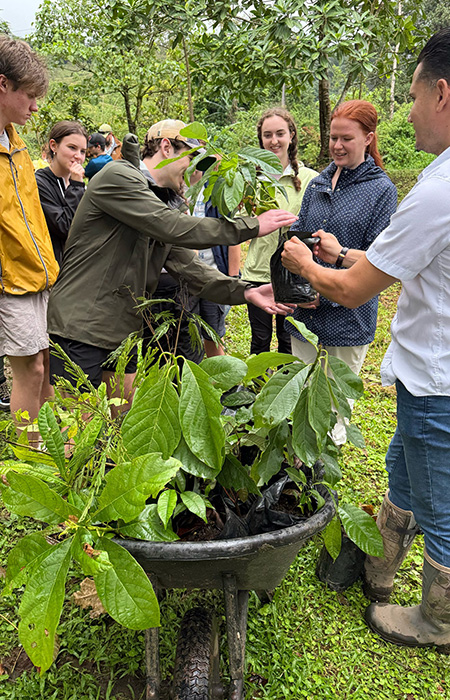

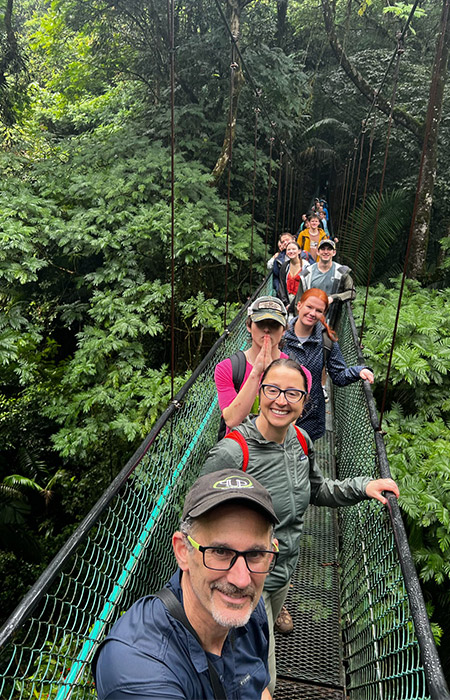
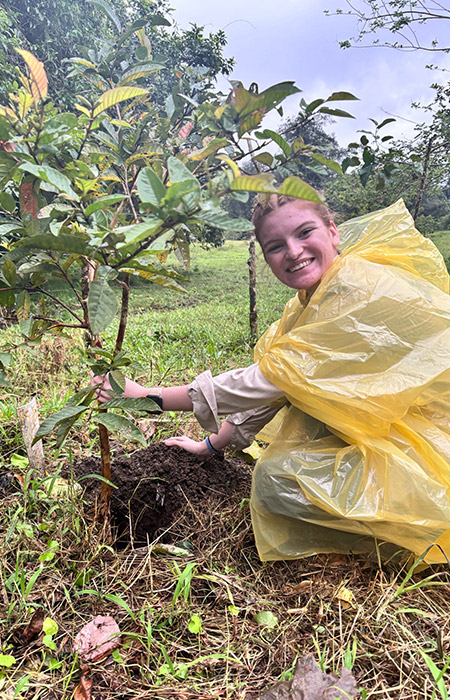
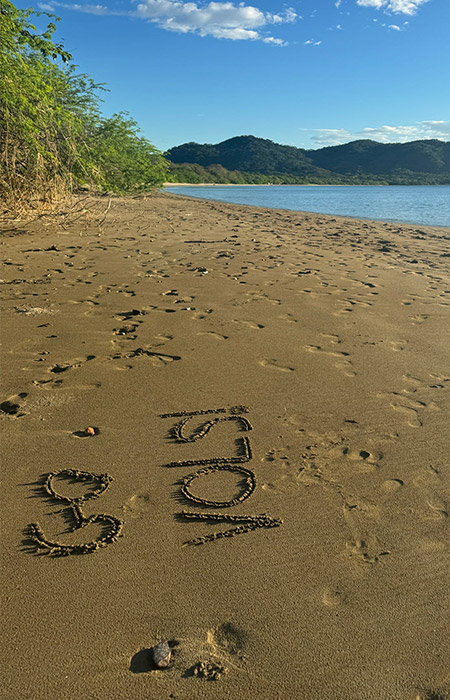
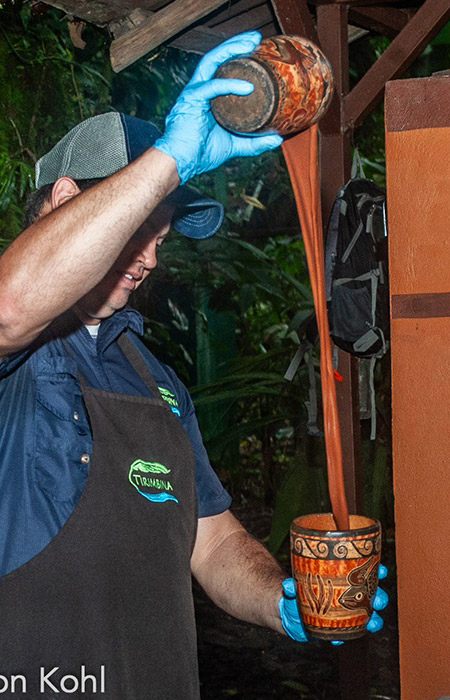
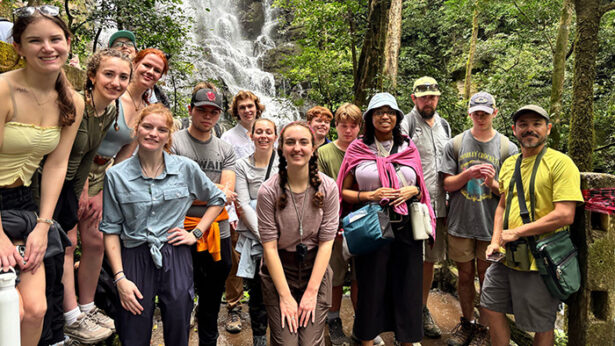
Click to Expand Images
“I didn’t expect the biodiversity we encountered in Costa Rica. We learned that it’s so diverse because of the variety of environments they have there. For example, the climate was different around the volcano than it was in the rainforest. This leads to a greater diversity of plants and animals, and better adaptation to differing climates,” says Kyla Metzger, who is studying wildlife health with a pre-veterinarian focus.
The group visited Tirimbina Biological Reserve and Rainforest Lodge, where they saw cloud forests and volcanoes and planted trees at a wellness park to contribute to the biological corridor. Another highlight was a bat tour where they learned about the agricultural impact of bats, such as preying on insect pests and pollinating crops.
“I really enjoyed Tirimbina and hiking through the rainforest. On every hike in every location, I felt like I was learning so much,” says Pastorello. “My favorite part of the trip had to be when we all got to plant a tree while in the wellness park. The goal is to create a wildlife corridor between fragmented forests, and I just felt so honored to be a part of that.”
Students also learned about in-country chocolate production and how it compares to the way chocolate is made around the world. They met Peace Corps volunteers stationed in Costa Rica and learned how this program could impact their future professional goals. Overall, this course gave the students a glimpse of international conservation efforts they can continue to engage with throughout their future studies and careers.
Metzger and Pastorello say the hands-on nature of the course had a major impact on how they learned and engaged with the content.
“Being able to interact with biodiversity in such an immersive setting gave me the chance to learn about it in a more in-depth way. It’s so different from just learning about it in a classroom,” Metzger says.
“I have to say, outside of all the amazing activities and experiences, what I was most surprised by was how much easier it was to learn and retain information while I was there seeing and experiencing it all,” Pastorello says.
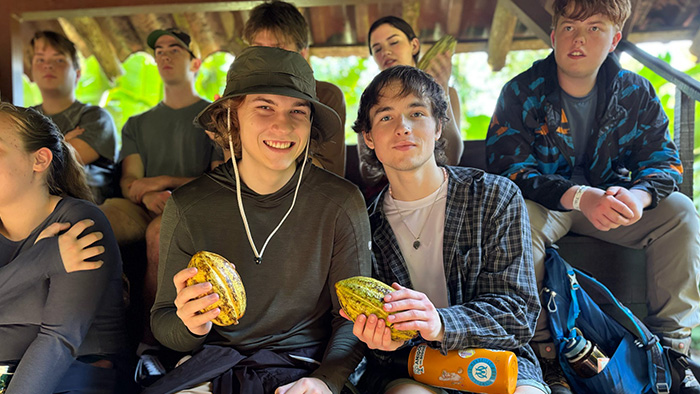
Isabelle Watson, a freshman wildlife management major, returned from the trip with a greater sense of confidence.
“Costa Rica truly had such a large impact on me, more than I can really express. Before we left for the trip, I was having second thoughts on my major. This trip reignited my passion for nature and conservation. It’s truly a once-in-a-lifetime experience,” she says.
Since 2019, the Smith Center has worked to double the number of Herbert students who have graduated with a global experience. “Developing this course has been a key part of working to meet the college’s goal to ensure that 50 percent of its students graduate with international experience,” says Tom Gill, professor, Smith Chair in international sustainable agriculture and Smith Center director.
“The Costa Rica program, with its lower cost and broad appeal, has proven to be so impactful for students that we will be sending two different cohorts to Costa Rica in the upcoming school year. This also gives two sets of faculty leaders the opportunity to expand their international engagement and connect the research and teaching interests they already have to the global stage.”
Barrier, who travelled with the students, saw the impact firsthand.
“It was a valuable opportunity to connect with our students and see how global experiences shape them,” she says. “Watching their growth reaffirmed my commitment to continuing this program so more first-year students can benefit.”
